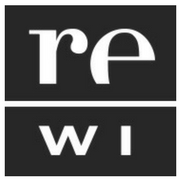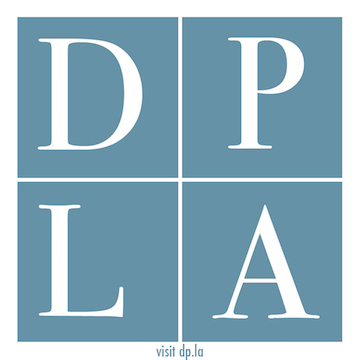The Building a Statewide Digital Readiness Community of Practice project has passed its halfway point! We’ve submitted our mid-year report to the NHPRC, and it feels like a good time to reflect on our accomplishments, challenges, and observations.
When we proposed the project in early 2020, the original plan called for the Launch Committee and other local history practitioners to come together in-person, at meetings and events around Wisconsin throughout 2021. By the time the project was funded, COVID-19 had altered everyone’s lives and work, including plans to gather in person. At that point, we paused planning for our key events. When I started work on this project in October 2020, even the timelines for the project had changed from the original grant proposal. All of this mutability from the get-go has meant keeping a loose hold on the details of precisely how the community of practice would come together – and really, isn’t that the lesson of 2020 and 2021? Don’t hold on to the details too tightly, because they’re likely to change. Nonetheless, we continued to build on a solid foundation: the project’s community-driven goals, developed in conversation with Wisconsin’s local history practitioners during the planning grant phase. We’ve found this year that a good plan enables flexibility not only in digital projects, but in carrying out our Community of Practice project too!
What has always been certain from the start? The unwavering support of and encouragement from our project Launch Committee, Recollection Wisconsin staff, WiLS staff, colleagues at the Wisconsin Historical Society and around the statewide local history community. I’ve had so much to learn and my nearly-eight-month immersion (so far) has been enlightening and gratifying. Local history organizations are “doing” history every day: interpreting, sharing, digitizing, distributing. Being part of the Recollection Wisconsin and their Digital Projects Team has given me a bird’s eye view of those organizations’ and their collections and initiatives. And from that vantage point, I recognized right away that so many organizations want to get started on digital projects, but they don’t know where to start.
The UW Madison iSchool does a good job providing practical, hands-on experiences for their graduate students, but my education there was still grounded in a lot of academic and archival theory. Theory is important but it doesn’t necessarily connect local history organizations with the tools and resources they need to embark on digital projects. What many local history organizations need is a place to start, advice along the way, equipment, and money. Connecting practitioners with those resources, and especially with each other, is the heart of this project. While this looks and feels a bit different in virtual spaces this year, the connections are happening! Our case studies and upcoming digital fairs are just a couple of ways we’re sharing practitioners’ real-world project experiences with our statewide community of practice.
Working for Recollection Wisconsin and WiLS has been a new and interesting experience all on its own! Recollection Wisconsin’s strong reputation as a hub for digital local history informs everything I do, and it’s a privilege to contribute to maintaining this high standard. WiLS and Recollection Wisconsin are also growing organizations, having wisely stewarded resources and diversified project obligations, and they’re a remote-work operation. Even though I started work seven months into the pandemic others were still acclimating to the work-and-school-from-home paradigm, WiLS/Recollection Wisconsin already had a handle on best practices gleaned from their experience as an office less and virtual workplace. Ample tools and resources to support virtual work allowed more mental bandwidth for the work itself.
Now, having convened, facilitated, and participated in multiple virtual meetings and events over the past year, I’m firmly in the remote-work “camp.” The normalization of video calls and the lack of travel time, down the hall or down the road, means scheduling time with practitioners and experts alike is much easier than if we were trying to coordinate in person. I miss seeing people in person, to be sure, and am looking forward to some safe get-togethers with colleagues in the coming months. But I hope the possibilities afforded by remote work continue beyond the pandemic’s social distancing.
It has been a delightful experience to work with WiLSians, as they call themselves; getting to observe, receive, and return their charm, support, kindness and encouragement has been a highlight of my time with this organization. These committed folks care deeply about our state’s libraries and information organizations; their empathy and drive inspire me to work as hard as they do to provide services to organizations in need of direction and resources.
Our project sure isn’t over–we’ll have four Digital Fairs, a workshop at the Wisconsin Historical Society Local History and Historic Preservation Conference, and a Digital Readiness resources website and guide to show for it in another several months. The future is bright and full of possibilities!
Are you interested in learning more about digital readiness and connecting with other local history practitioners engaged in digital work? Join our listserv! Visit digistew and click “Ask to join group” at the top of the page to be added to this listserv. Visit Digital Readiness Community of Practice for more information about this project.
About the author
Kristen Whitson is the Digital Readiness program assistant. Each month, she shares her experiences working on this project and building community around digital readiness concepts.
Building a Community of Practice for Digital Readiness in Wisconsin is supported by an Archives Collaboratives Implementation Grant from the National Historical Publications and Records Commission (NHPRC), the granting arm of the National Archives. Read the full implementation grant narrative submitted to NHPRC.


